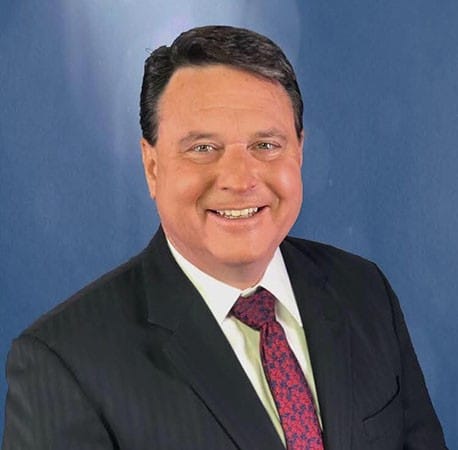
The Indiana Citizen
August 11, 2023
In presenting a new volume of his office’s Parents’ Bill of Rights earlier this week, Indiana Attorney General Todd Rokita put the focus on religion, asserting separation of church and state is a myth, but one legal scholar said the top Hoosier lawyer is misstating the law.
Rokita held a virtual press conference Aug. 8 to unveil the latest volume four of the handbook. The 108-page Parents’ Bill of Rights includes all the volumes and outlines the recourses parents have in such issues as school curriculum, medical decisions and school choice.
Entitled “Religious Freedom,” the fourth volume, according to the introduction, explains that “religious freedom does not end at the school doors.” The topics covered include praying at school, forming a religious club, and using the Bible or other religious texts in the classroom.
Rokita defended the volume in response to a question about whether it followed the law since the church and the state are supposed to be separate. He said nothing referred to or quoted in the handbook is contrary to Indiana statute
“The myth of a separation of church and state came from some case law a few decades ago, but it is a myth,” Rokita said. “What our First Amendment guarantees us is that we are free from the government establishing a particular religion. It doesn’t mean that student-led prayer in school is prohibited.”
Indiana University Robert H. McKinney School of Law professor Jennifer Drobac said she was shocked by the attorney general’s use of the word “myth.”
“It’s a misstatement of the law is what it is,” Drobac said. “And I find it shocking that the attorney general of the state of Indiana does not understand the law.”
She maintained Rokita contradicted “well-established” U.S. Supreme Court precedent that upholds the separation of church and state. Also, quoting the late Justice Harry Blackmun and retired Justice Sandra Day O’Connor, she said the government is prohibited not just from the establishment, but from the endorsement, sponsorship and active involvement in religion.
“The overwhelming majority of our history has been that church and state must be separate for people to be truly free,” Drobac said.
Volume four offers answers to questions about the practice of religion at school and includes citations to previous court rulings, bills passed by the Indiana General Assembly and state statutes. In particular, the handbook says while in school, students can talk about their religious beliefs as long as it is related to the classroom discussion or assignment; they can distribute religious materials if it does not interfere with classwork; and they can promote religious events occurring outside of school.
Rokita’s press conference about the new volume was livestreamed over Facebook and accessible only to individuals with an account on the social media platform. Looking directly into the camera, Rokita talked about the volume and the rights of parents while standing in front of the state’s seal.
“…this is a great starting point, a terrific resource,” Rokita said of the handbook.
Drobac described the Parents’ Bill of Rights as “very one-sided.” The volume, she said, explains students’ rights but does not clarify the authority schools have to limit speech that does not represent the school’s message or might be hurtful to other people.
She was also concerned about the message conveyed by the optics.
“When Todd Rokita gets in front of the Indiana seal at an official press conference then his words count as the words of the state,” Drobac said.
In his remarks, Rokita said students are free to pray on their own or voluntarily join other students in prayer. Teachers can also pray and even get together with students for a prayer session, as long as they are not disrupting instructional time.
“Your kids, regardless of private or public (school), have a right to pray in school,” Rokita said. “It can’t be something … that’s school-led. Like I said before, it has to be student-led.”
Drobac sees a slippery slope. Even under the banner that the prayer is voluntary, students participating may send the message that the school is endorsing one particular religion over others. When a teacher or coach gets involved, the potential problem is compounded.
“The consequences, I believe, are that the majority religionists and religious followers will not see, or might not see, that minority religious adherence or people who are atheist or agnostic or simply want to have their own religion private, those people will be outed, will be discouraged, will be held up for ridicule, possibly,” Drobac said.